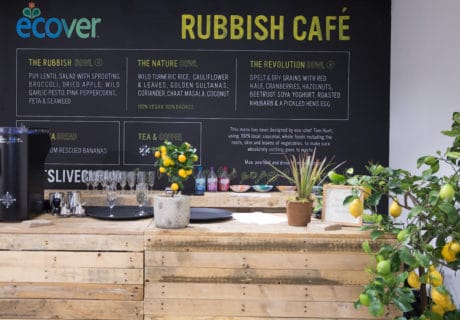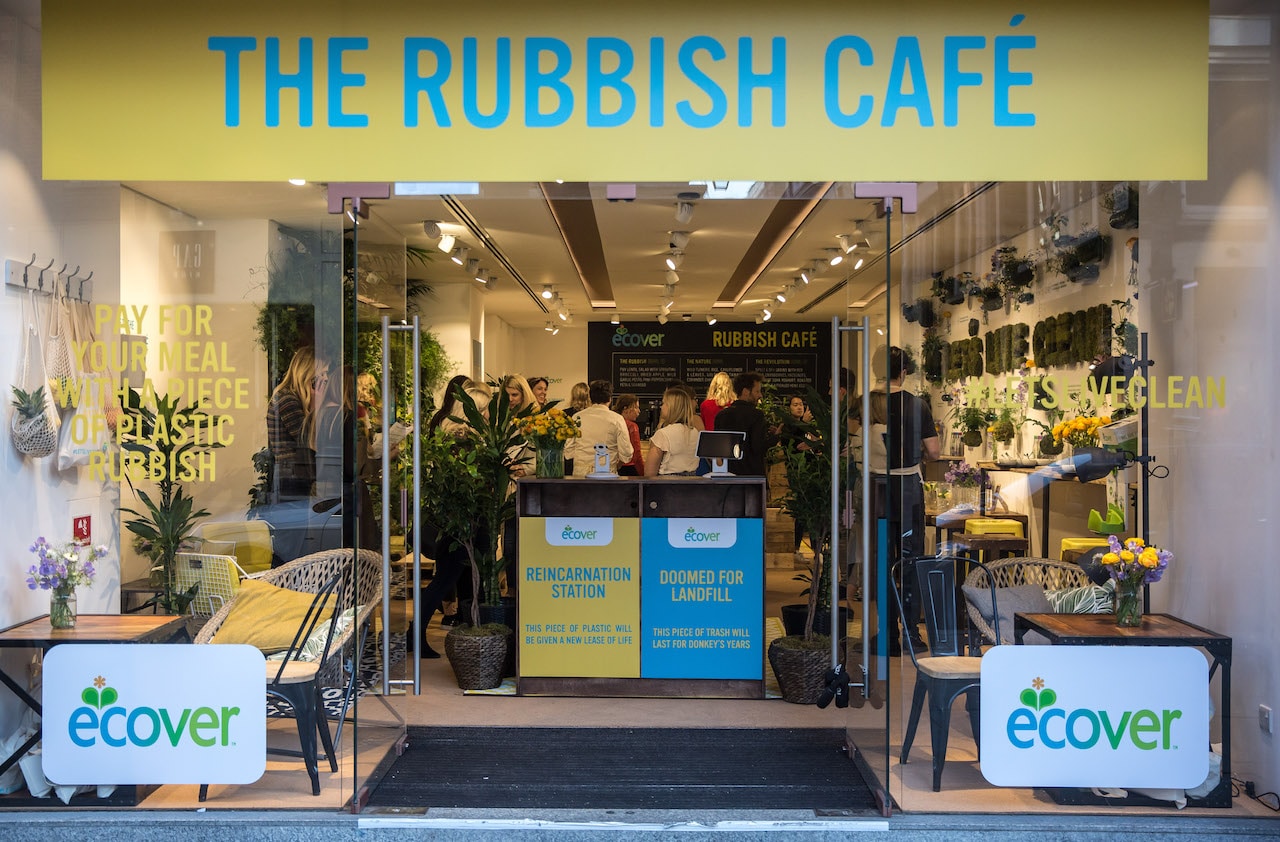‘Putting it on the plastic’ took on a new meaning at The Rubbish Café, launched by Ecover in London on 2 May, which ran for three days and accepted only plastic waste as currency.
The premise behind this ‘pop-up café experience with a twist’ was that the public would ‘pay’ for its food and drink with recyclable plastic rubbish in a bid to encourage consumers to ‘re-think the value of rubbish’, and to challenge the notion that ‘rubbish’ is without value.

A collaboration with eco-chef Tom Hunt, the café offered a zero-waste menu which consumers could enjoy in stylish surroundings decorated by eco designer and upcycling expert Max McMurdo.
Among its aims, Tom Domen, global innovation leader at Ecover, says the pop-up intended to ‘serve up inspiration and ideas for simple swaps we can all make to reduce, reuse and recycle plastic’.
We need more firms and retailers to play their part
The project came off the back of new research released by Ecover which indicated that Britons would ‘happily part with £4 a week more for their shopping if all the packaging was recyclable’ and revealed that the nation’s passion for recycling is demonstrated by one in ten respondents saying that failing to recycle ‘should be a criminal offence’. Despite this keen appetite for greener living in the UK, the study showed there to be nationwide confusion about recycling, with seven in ten of those surveyed unsure of which plastics can and cannot be recycled. The results identified the nation’s demands as clearer product labelling and bottle deposit schemes, with 83% saying they would use product refill containers if the service was more widely available in stores.

Commenting on behalf of Friends of the Earth, campaigner Julian Kirby calls the public’s enthusiasm for action on plastic waste ‘a powerful sign … that tougher action is not just needed, it’s wanted too’.
“Some companies, such as Ecover, are taking this issue seriously, but we need more firms and retailers to play their part. While the Government has taken small steps to target plastic pollution, it’s not enough to address the scale of action required to prevent plastics from choking our oceans. The Government must listen to the public, phase out single-use plastic and draw up plans to end the use of all but the most essential plastics,” says Kirby.
Domen adds: “As manufacturers, we believe we need to totally re-think plastic – how we make it, use it, re-use it and recycle it. We want to make it as easy as possible for people to make environmentally-friendly choices without compromise. We want to eradicate single-use plastic. And then we want to envision a world that is plastic-free.”





